Related Research Articles

Boris Godunov is an opera by Modest Mussorgsky (1839–1881). The work was composed between 1868 and 1873 in Saint Petersburg, Russia. It is Mussorgsky's only completed opera and is considered his masterpiece. Its subjects are the Russian ruler Boris Godunov, who reigned as Tsar during the Time of Troubles, and his nemesis, the False Dmitriy. The Russian-language libretto was written by the composer, and is based on the 1825 drama Boris Godunov by Aleksandr Pushkin, and, in the Revised Version of 1872, on Nikolay Karamzin's History of the Russian State.

Nikolai Andreyevich Rimsky-Korsakov was a Russian composer, a member of the group of composers known as The Five. He was a master of orchestration. His best-known orchestral compositions—Capriccio Espagnol, the Russian Easter Festival Overture, and the symphonic suite Scheherazade—are staples of the classical music repertoire, along with suites and excerpts from some of his 15 operas. Scheherazade is an example of his frequent use of fairy-tale and folk subjects.
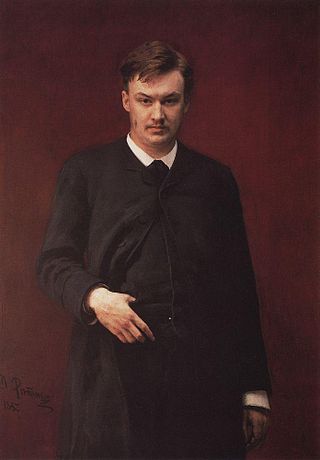
Alexander Konstantinovich Glazunov was a Russian composer, music teacher, and conductor of the late Russian Romantic period. He was director of the Saint Petersburg Conservatory between 1905 and 1928 and was instrumental in the reorganization of the institute into the Petrograd Conservatory, then the Leningrad Conservatory, following the Bolshevik Revolution. He continued as head of the Conservatory until 1930, though he had left the Soviet Union in 1928 and did not return. The best-known student under his tenure during the early Soviet years was Dmitri Shostakovich.
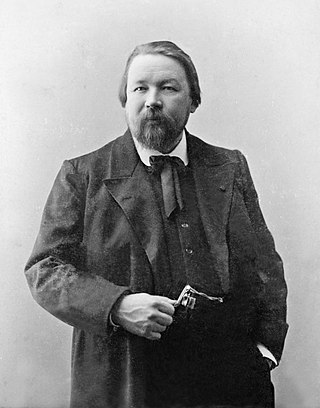
Mikhail Mikhailovich Ippolitov-Ivanov was a Russian and Soviet composer, conductor and teacher. His music ranged from the late-Romantic era into the 20th century era.

The N. A. Rimsky-Korsakov Saint Petersburg State Conservatory is a school of music in Saint Petersburg, Russia. In 2004, the conservatory had around 275 faculty members and 1,400 students.
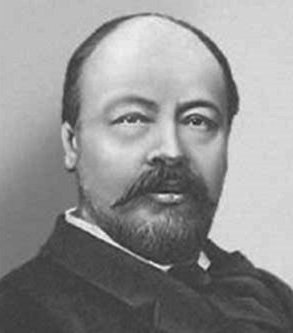
Anatoly Konstantinovich Lyadov was a Russian composer, teacher, and conductor.

The Legend of the Invisible City of Kitezh and the Maiden Fevroniya is an opera in four acts by Nikolai Rimsky-Korsakov. The libretto was written by Vladimir Belsky, and is based on a combination of two Russian legends: that of Saint Fevroniya of Murom, and the city of Kitezh, which became invisible when attacked by the Tatars. The opera was completed in 1905, and the premiere performance took place at the Mariinsky Theatre in St. Petersburg, on February 7, 1907, the last in Rimsky-Korsakov‘s lifetime.
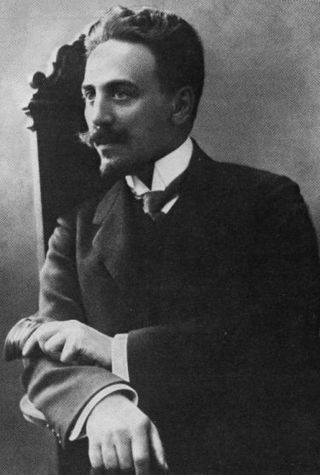
Felix Mikhailovich Blumenfeld was a Russian and Soviet composer, conductor of the Imperial Opera St-Petersburg, pianist, and teacher.
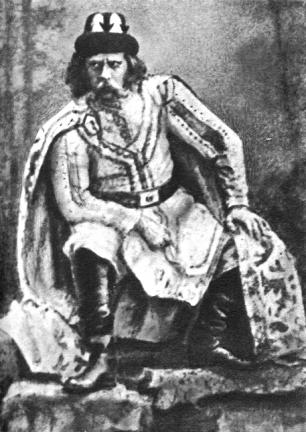
Mlada is an opera-ballet in four acts, composed between 1889 and 1890 by Nikolai Rimsky-Korsakov, to a libretto by Viktor Krylov that was originally employed for an aborted project of the same name from 1872.

Emil Albertovich Cooper, also known as Emil Kuper was a Russian conductor and violinist, of English ancestry.
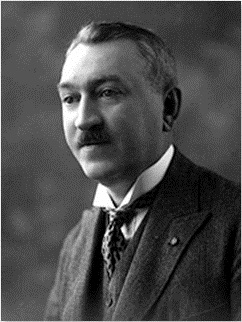
Nikolai Nikolayevich Tcherepnin was a Russian composer, pianist, and conductor. He was born in Saint Petersburg and studied under Nikolai Rimsky-Korsakov at the Saint Petersburg Conservatory. He conducted for the first Paris season of Sergei Diaghilev's Ballets Russes.

Kashchey the Immortal is a one-act opera in three scenes by Nikolai Rimsky-Korsakov. The libretto was written by the composer, and is based on a Russian fairy tale about Koschei the Deathless, an evil, ugly old wizard, who menaced principally young women. Rimsky-Korsakov perceived it as 'an autumn tale' that is juxtaposed to his previous 'spring tale', The Snow Maiden. A similar fairy tale was also used by Igor Stravinsky and Michel Fokine to create their iconic ballet, The Firebird.
Vassili Vassilyevich Nebolsin was a Russian conductor. He studied at the college of the Moscow Philharmonic and became conductor of the orchestra in 1918. He became choir master of the Bolshoi in 1920 and its conductor in 1922. He taught at the Moscow Conservatory from 1940 to 1945. The Stalin Prize was awarded him in 1950.

Sergei Nikiforovich Vasilenko was a Russian and Soviet composer, conductor and music teacher whose compositions showed a strong tendency towards mysticism.

Witold Maliszewski was a Polish composer, founder of Odessa Conservatory, and a professor of Warsaw Conservatory.
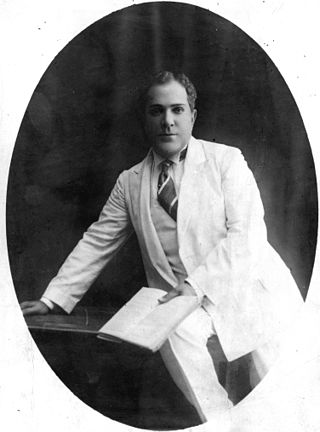
Pyotr Ivanovich Slovtsov was a famous Russian tenor.

Lev Petrovich Steinberg, was an influential Russian Jewish conductor and composer.

Saratov Conservatory is a music conservatory in Russia.
Evgeny Sheyko, a Russian conductor, musical figure was Chief Conductor of Nizhny Novgorod State Academic Opera and Ballet Theatre.
Aleksey Ivanovich Kandinsky was a Soviet musicologist who is known for his writings on contemporary Russian musical life and Russian music of the 19th and early 20th centuries. In addition to writing a biography on Nikolai Rimsky-Korsakov, he penned seminal writings on the works of Mily Balakirev, Alexander Dargomyzhsky, and Sergei Rachmaninoff. In 1969 he was named a Meritorious Artist of the Russian Federation.
References
- ↑ "Nisson Shkarovsky (Russian)". New Russian Jewish Encyclopedia. Retrieved 6 November 2016.
- ↑ "Nisson Adol'fovitch Shkarovsky".
- ↑ "The History of Opera in Saratov". Opera Ballet.